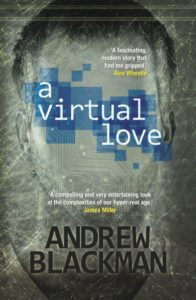I was interviewed recently for a podcast by book blogger Charlie Place, and her perceptive questions got me thinking about my writing. In particular, why do I deliberately frustrate readers’ expectations in my novels?
You can listen to the podcast on Charlie’s site if you so desire. Or you can listen below:
Now that I’ve had some extra time to think about it, I think the main reason why I like to write books that subvert readers’ expectations is because that’s the kind of book I like to read myself.
For example, I love the writing of Jorge Luis Borges, and almost all of his stories deliver the opposite of what readers have come to expect. In a review of one of his short stories that I wrote back in 2009, I mentioned how frustrating the ending was. Borges lays out a few dramatic and/or poetic possiblities, and then gives the true ending: the main character suddenly dies of pulmonary congestion, and everything the story has made you care about comes to nothing.
Here was my reaction:
“An infuriating ending, yes, but for me it’s one that says something about the futility and unpredictability of life, the frailty of human plans, the way in which successful and powerful people can very suddenly fall from power and even die…. Most of all the ending feels true, more true (if less poetic) than the other possibilities.”
Borges does similar things in his other stories. He abandons narrative technique entirely sometimes, switching to the dry language of a history textbook. Or he writes a detective story in which every convention of the genre is ignored. He deceives and frustrates, he deliberately misquotes from other books, he plays with what fact and fiction are.
I could go through my other favourite books and writers, and many of them would have the same characteristics: the book was in some way not what I thought it would be. I’m not talking about a surprising plot twist, which is common enough to be unsurprising in my view. I’m talking about subverting the reader’s whole idea of what’s going on.
My writing is not at all like that of Jorge Luis Borges or other writers I admire, but what I do try to do is to write stories that surprise people, perhaps shake them up, perhaps make them think a little differently about something. I want them not just to be entertained or diverted for a few hours, but to be changed in some small way, to see the world a little differently than they did before they picked up the book.
In the podcast, Charlie asked about the endings of both my novels and why, in both cases, the ending was quite different from the direction the story seemed to be going in. I can’t quite remember what I said, and I cringe too much at the sound of my own voice to listen and find out, but I remember acknowledging that it was a conscious risk, and that the endings wouldn’t work for everyone.
Reader expectations are there for a reason, after all. We have been developing our sense of what a story should be over the course of millennia, and when events seem to be building to a certain climax, it’s probably sensible to deliver that climax.
But what if life doesn’t work that way? What if fraudsters don’t always get exposed and humiliated? What if the conflict that seems inevitable gets averted? What if our online identities have now become so fluid and so unreal that an identity thief can live on, undetected?
That’s what I was going for with A Virtual Love. I deliberately built towards a climax, having all the signs point to an expected ending in which a pretender gets his comeuppance, and then I had things take a different turn. The comeuppance never came up.
The ending didn’t work for everyone. I’ve been asked about it in book groups and library talks, in podcasts and Q&As, in tones ranging from curiosity to accusation.
It would have been easier, of course, to have delivered the ending people expected. Frustrating readers’ expectations is a risk. It’s quite possible that, instead of making people see things differently, I just disappointed them.
But why write a book if not to express something about the way you see the world? And why alter that expression in pursuit of popularity?
Charlie also pointed out some other ways in which I frustrated readers’ expectations in both my books, and we talked about them in the podcast. Have a listen if you have the time. Charlie’s site also has links to the various podcast apps if you prefer to download and listen that way. And I can say from listening to a few other episodes that it’s worth subscribing if you’re a book lover, so please go ahead and do that too.
Do you like to be surprised, even frustrated, when you’re reading? Or do you want writers to deliver what they seem to have promised? Let me know in the comments.





There are 2 comments
As a reader I like to be surprised or frustrated. The only time I don’t like it is if it feels false and truly doesn’t fit with the story. What I dislike most are stories that tie everything up so neatly at the end that it makes everything feel so false and manipulated which is at the other end of the story continuum. So I guess what I am trying to say is, surprising, frustrating, or neat and tidy are all fine with me as long as they are organic to the story and not tacked on or forced in there because that’s what the author wanted. Does that make sense? 🙂
Hi Stefanie, Yes, that makes perfect sense! I agree, it should definitely feel organic and not forced. I think that as a reader I like to feel, “Wow, that wasn’t what I was expecting, but I see why it had to be that way.” Or, perhaps, “I don’t quite get why it had to be that way, but it’s intriguing and is making me think about why the author did that.” But when it feels forced or manipulated, that’s a definite turn-off!